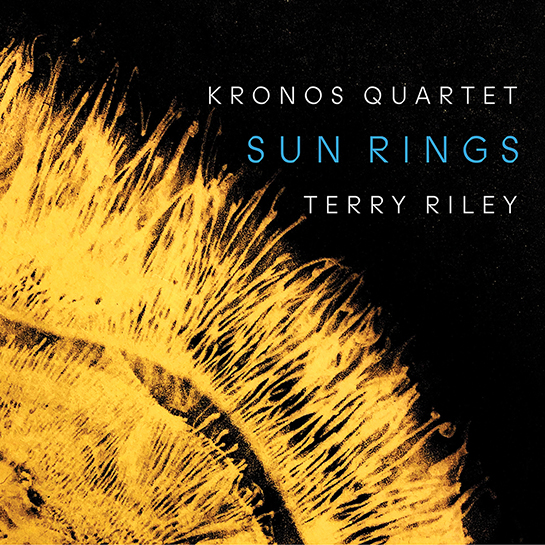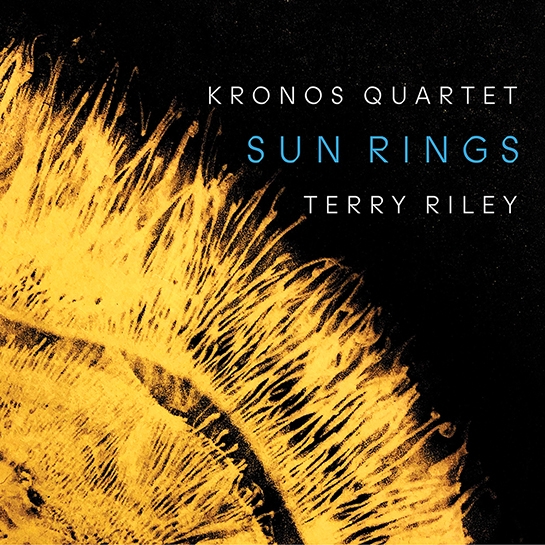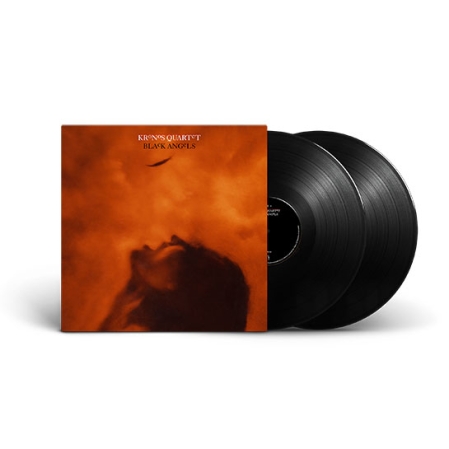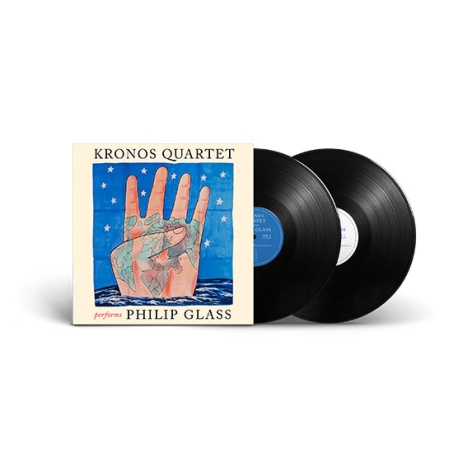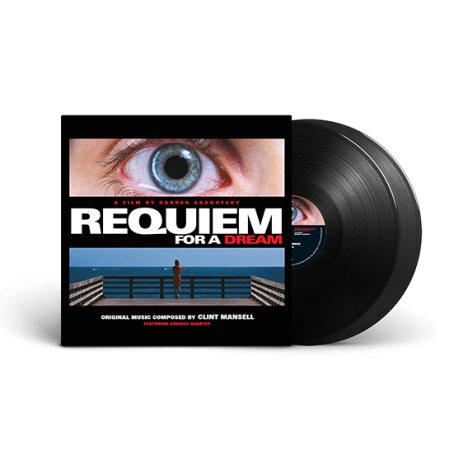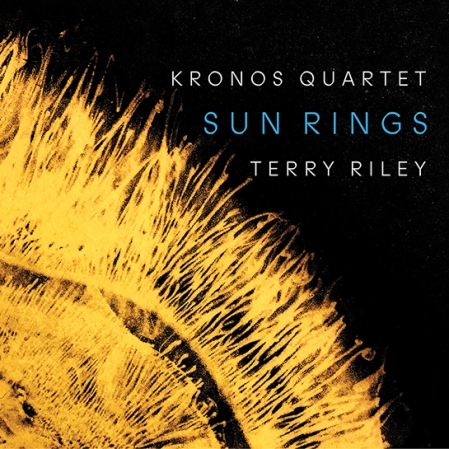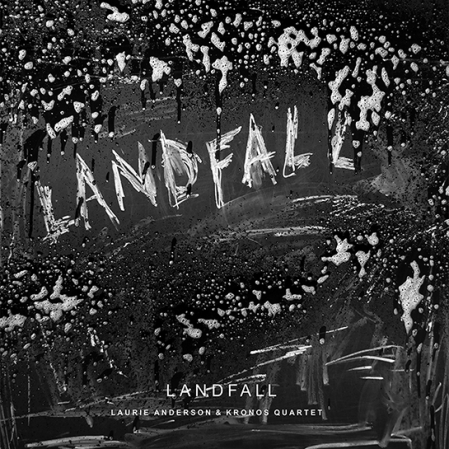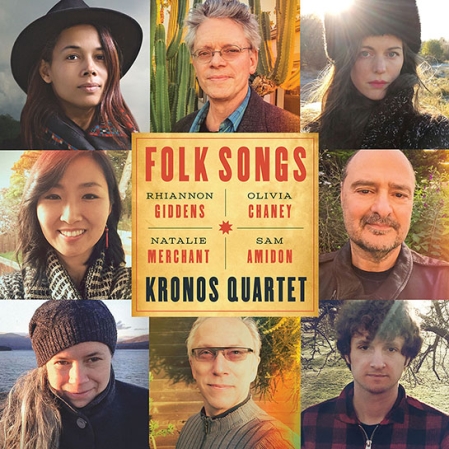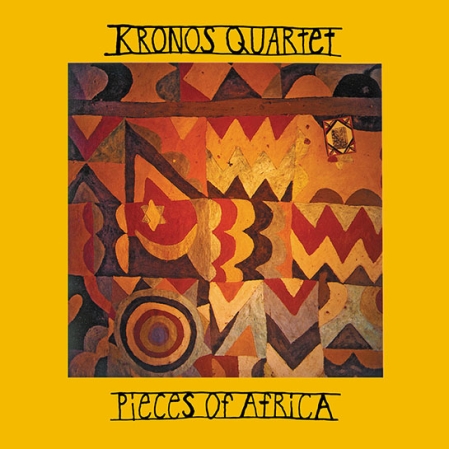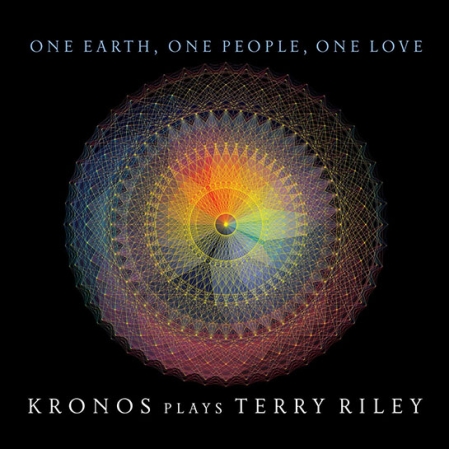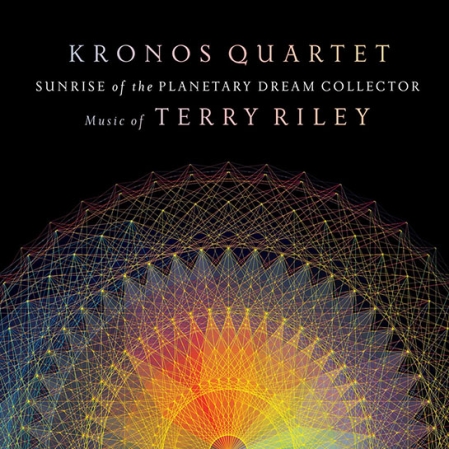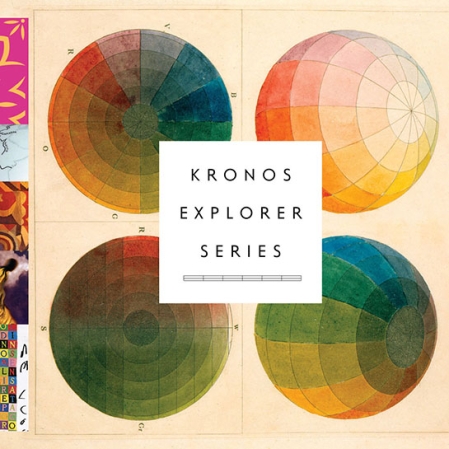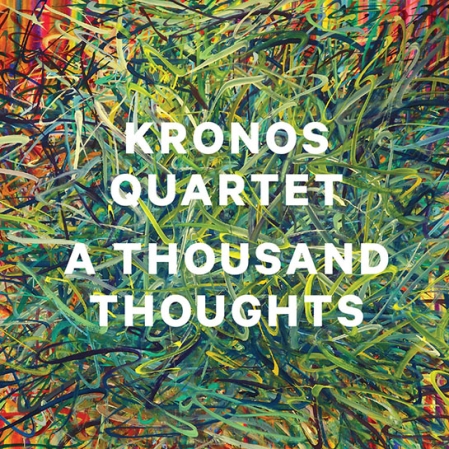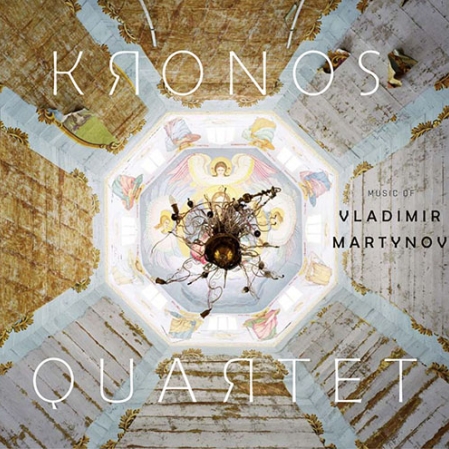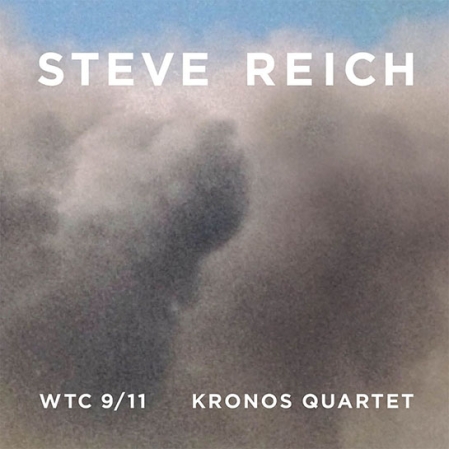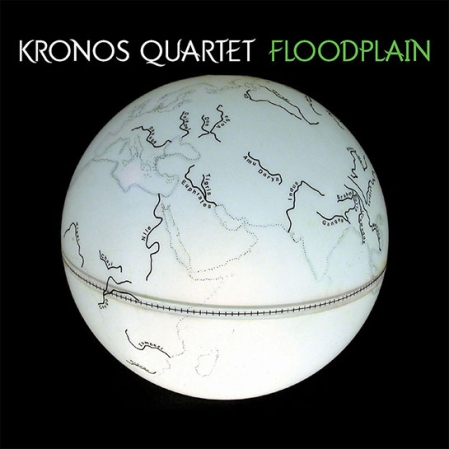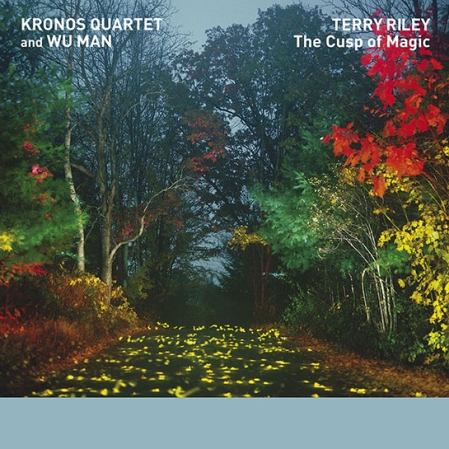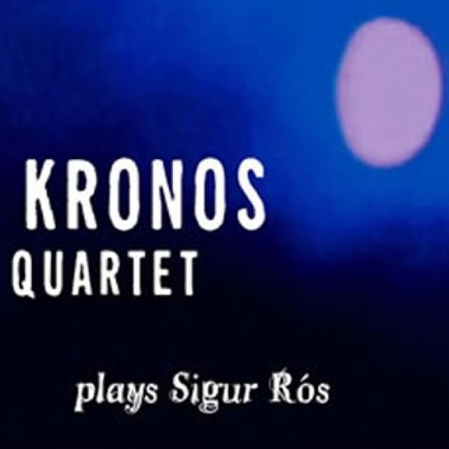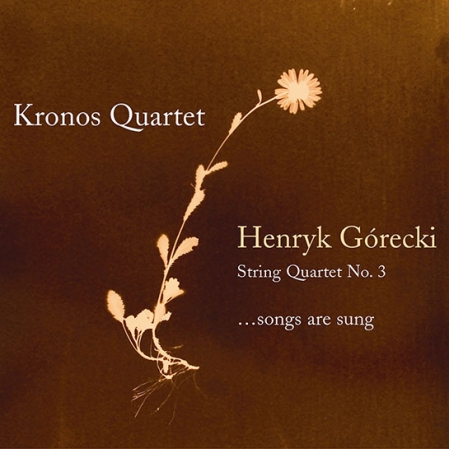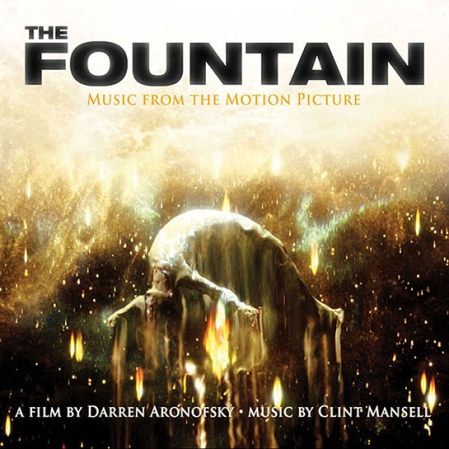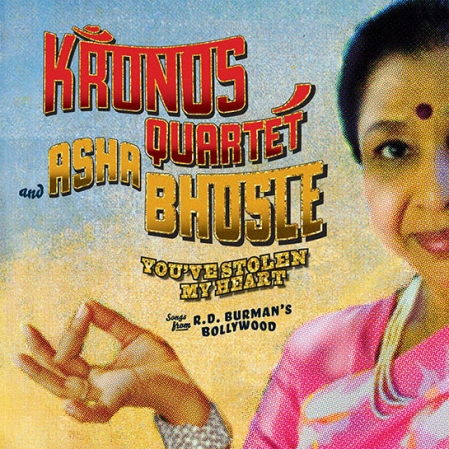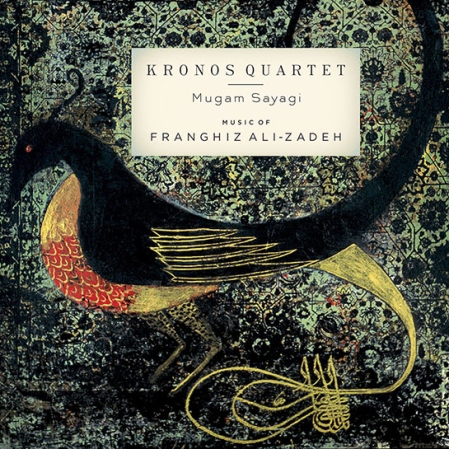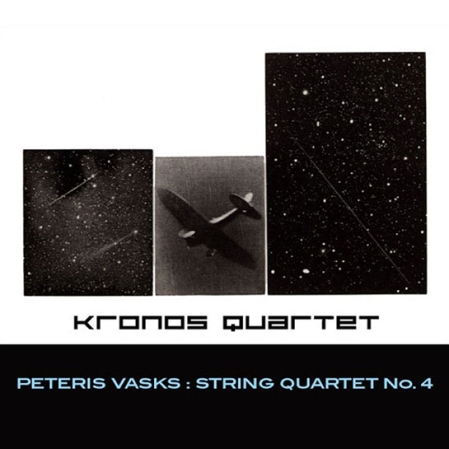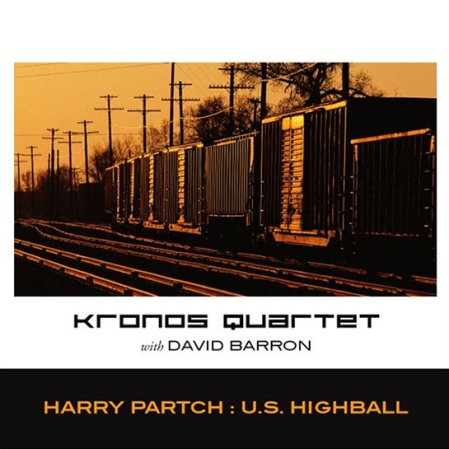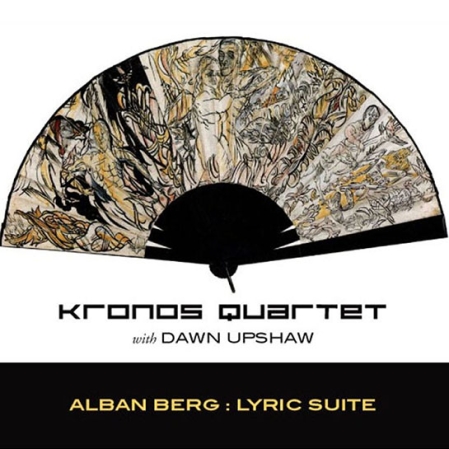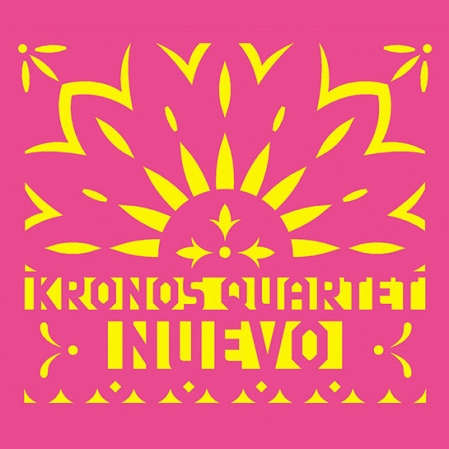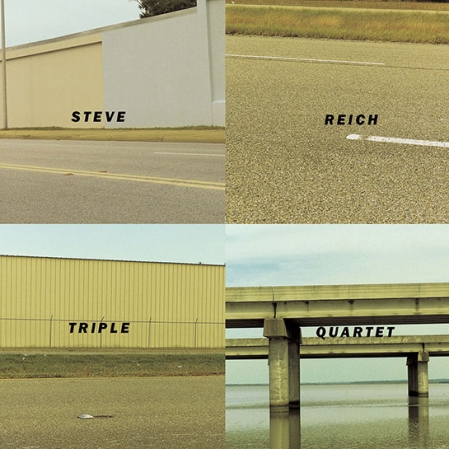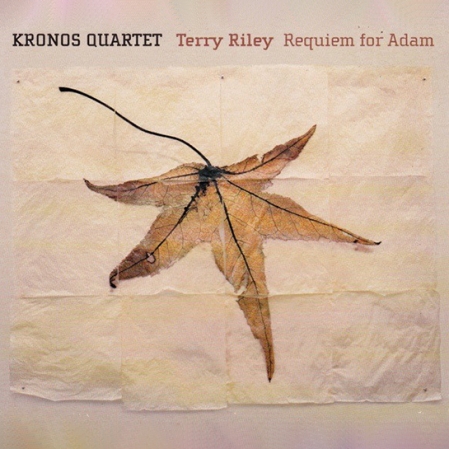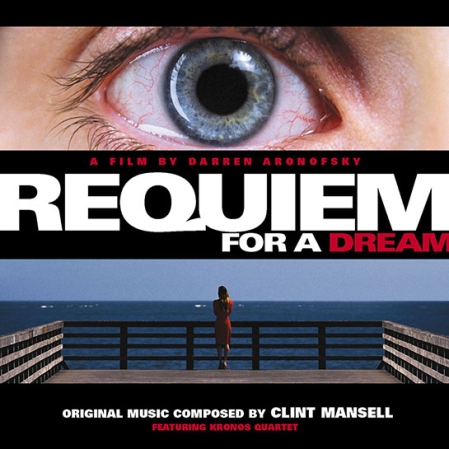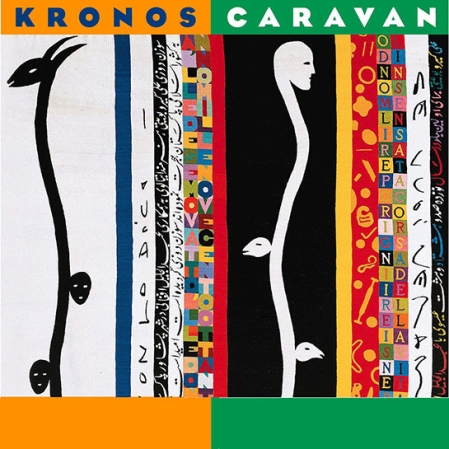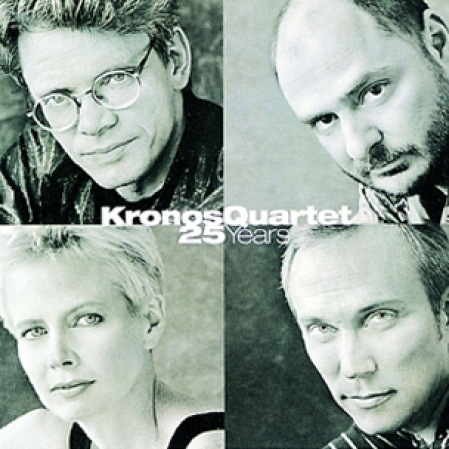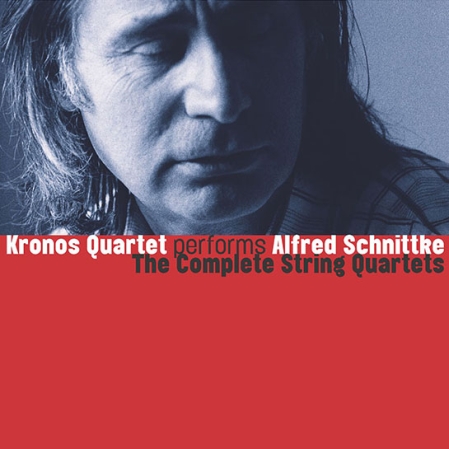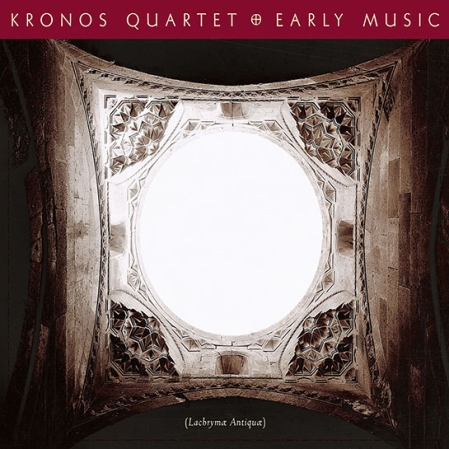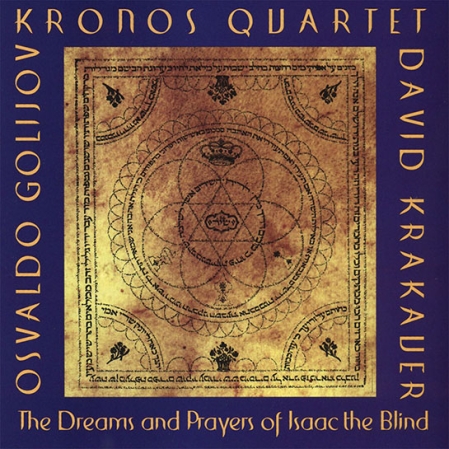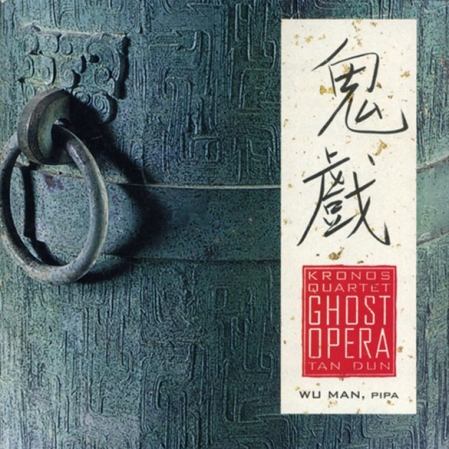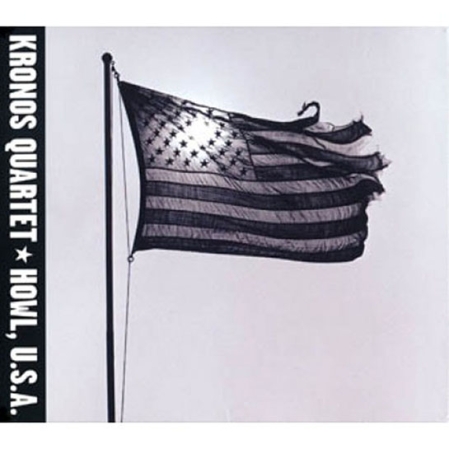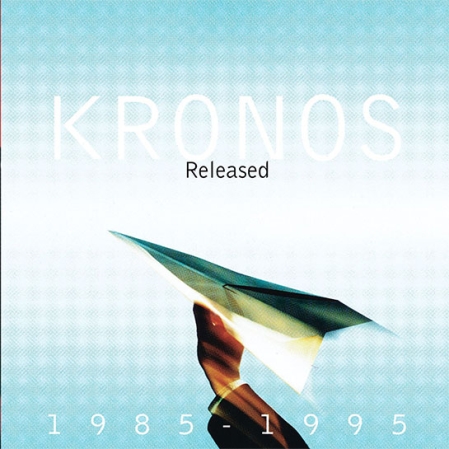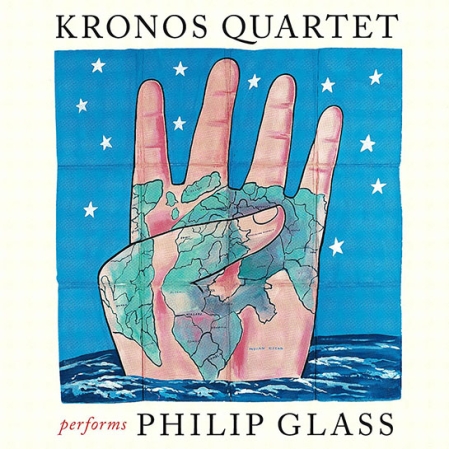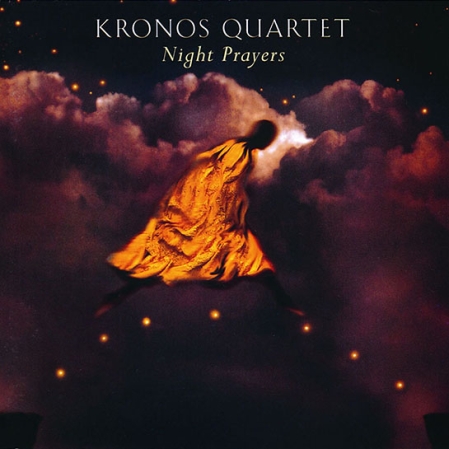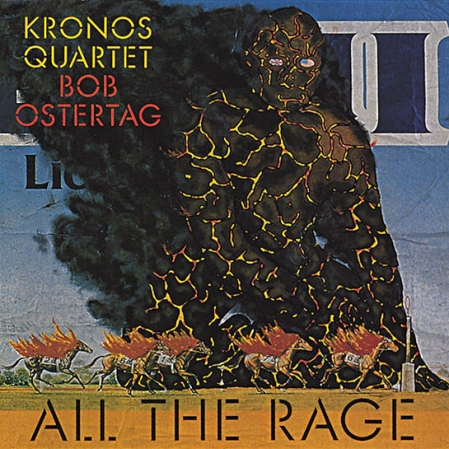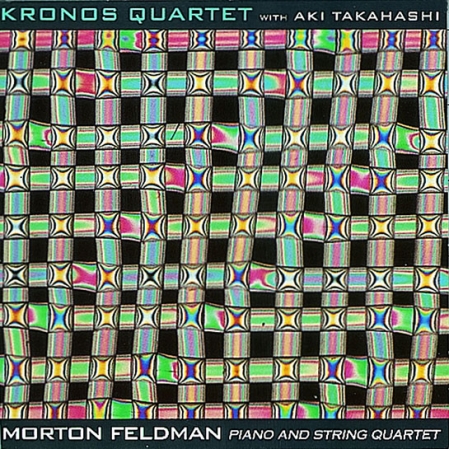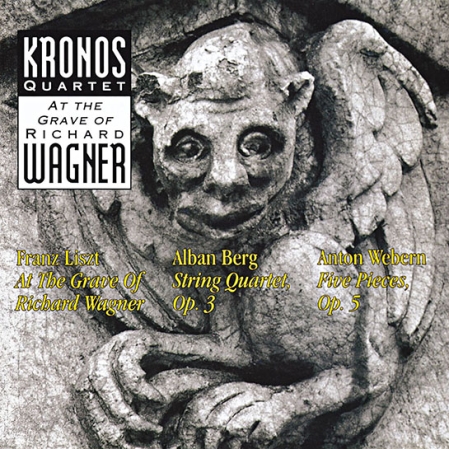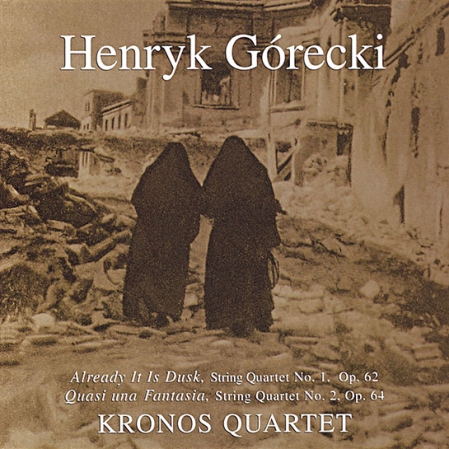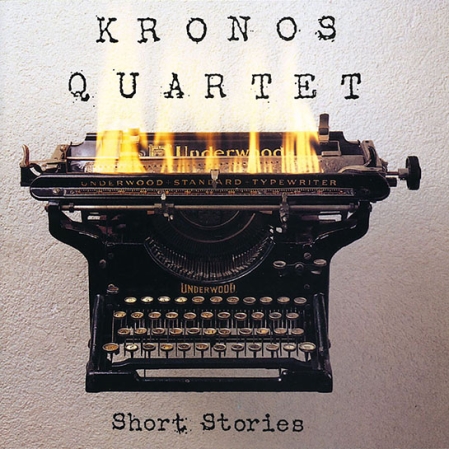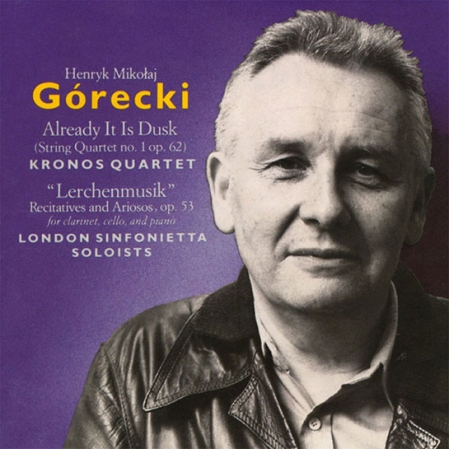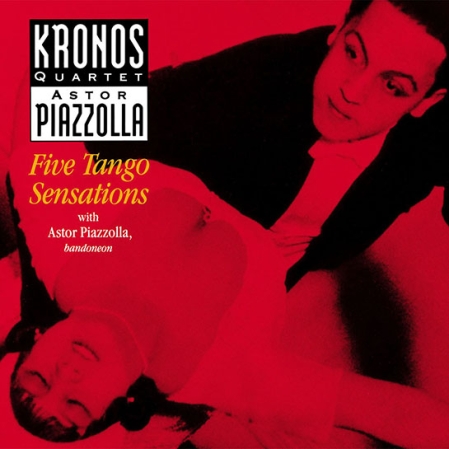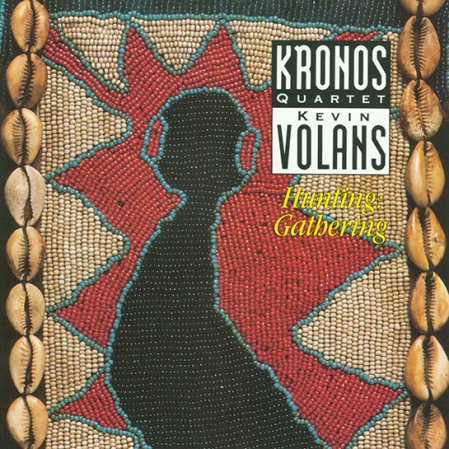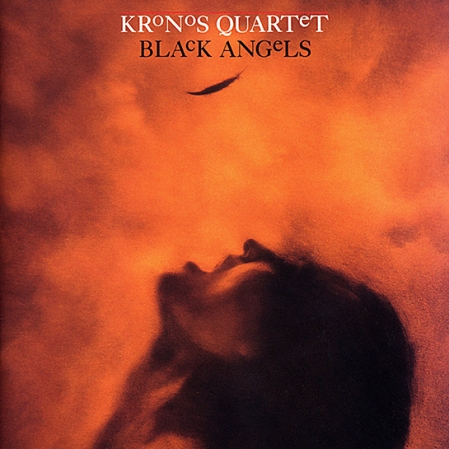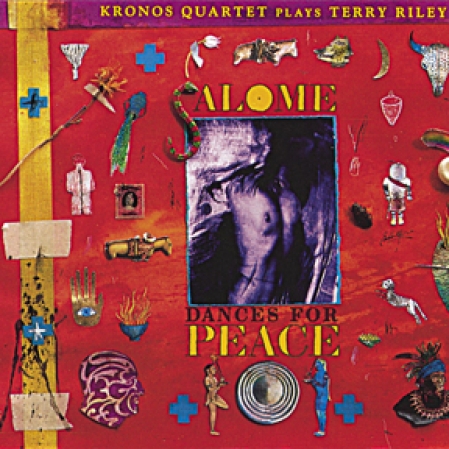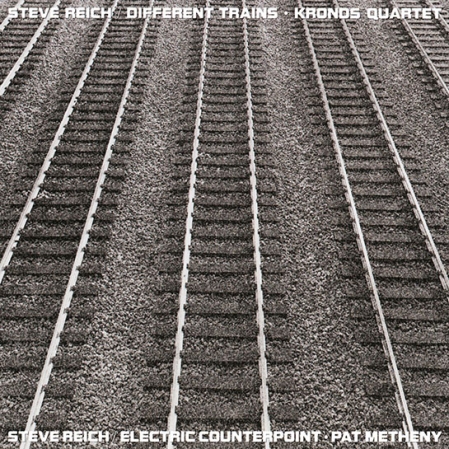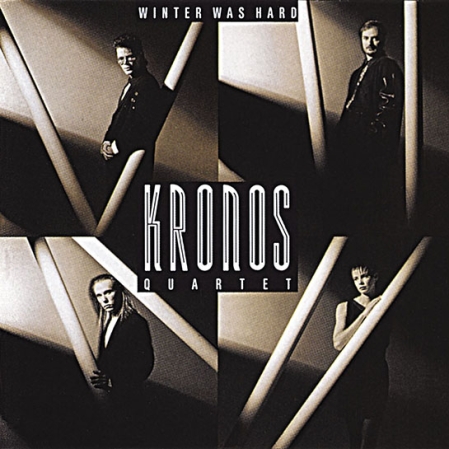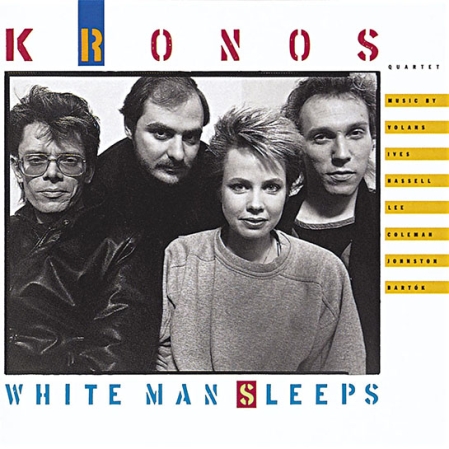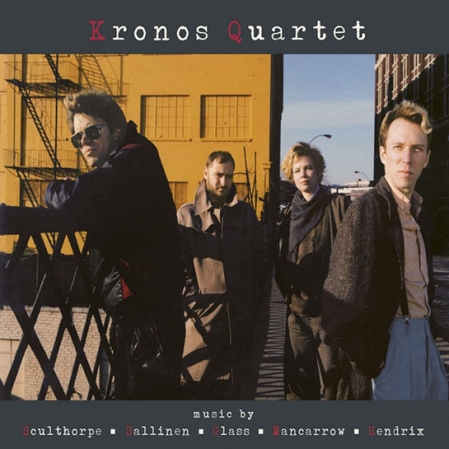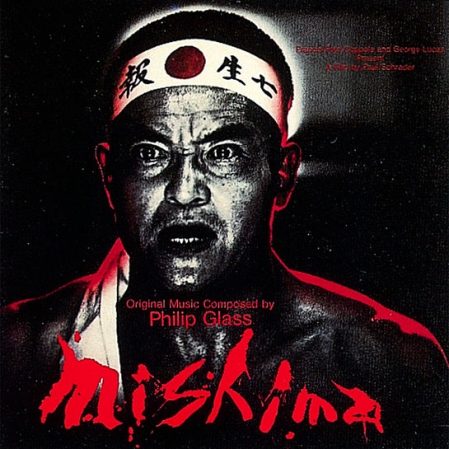Kronos Quartet’s groundbreaking 2002 collaboration with composer Terry Riley, Sun Rings, is available in full for the first time. Riley incorporates into his composition "space sounds" (plasma waves) that NASA had collected from the Voyager probes, as well as a choir that represents, in his words, "the voice of humanity in its struggle to understand the meaning of our place in this unfathomable universe." Musical America calls it "a spaceship that faces ahead into the planets but also looks back toward its starting point on Earth." Grammy Award Winner: Best Engineered Album, Classical.
Grammy Award Winner: Best Engineered Album, Classical
Kronos Quartet's groundbreaking 2002 collaboration with composer Terry Riley, Sun Rings, is available as a recording for the first time via Nonesuch Records on August 30, 2019. One movement from the piece—"One Earth, One People, One Love"—was previously included in Kronos' 2015 Terry Riley box set of the same name.
Sun Rings began with a call from NASA to Kronos Quartet's manager. The twenty-fifth anniversary of the Voyager 1 space probe's launch was coming, and the agency wondered if Kronos would be able to use the "space sounds" that Voyager 1 and 2, as well as other spacecraft, had sent back to Earth in its performances.
A meeting was quickly arranged between Kronos' artistic director, founder, and violinist David Harrington and University of Iowa physics professor Don Gurnett, who had developed the plasma wave instruments that had received these sounds. After listening to Gurnett's collection of favorite "space sounds," Harrington says, "I instantly knew Terry should be the composer to bring them into our work." At that point, Riley and Kronos had been working together for more than twenty years, beginning with the composer's Sunrise of the Planetary Dream Collector. Harrington continues, "Eventually this led to all sorts of sonic adventures in Don's office."
Gurnett says, "The resulting meeting was one of the most memorable in my life, as it involved a very unusual art-science collaboration between a group of musicians and myself, a scientist who had never played a musical instrument… Of course, as a scientist, I tried to explain how these sounds were produced; however, the discussion soon turned to more philosophical questions: Are these sounds musical? Can nature produce music?" In explaining the "space sounds," or more accurately plasma waves, recorded via NASA spacecraft, he says, "Contrary to common conception, space is not a vacuum. It always has a finite density and temperature: sometimes ionized in the form of a plasma, and sometimes in the form of an electrically neutral gas. Thus, sound waves can indeed propagate in space."
After Gurnett gave him cassettes with these sounds on them, Riley says, "I began to listen to see what kind of musical element could be buried deep within the spectrum of their mostly raw, grainy sound. There was a wide variety of sonic textures and frequencies of the different samples, often resembling both natural and synthesized sounds found here on Earth." Many of the samples were eventually integrated into Riley's composition.
The September 11, 2001, attacks happened while Riley was composing, temporarily stopping his work. He was seeking a way to incorporate meaning motivated by peaceful intentions and compassion, when he heard Alice Walker on the radio, speaking about a mantra that had helped her through the tragedy: "…one earth …one people…one love."
"Hearing this, I had a renewed desire to continue work on Sun Rings in the spirit of the connectivity of all things. I added a choir to two of the movements to represent the voice of humanity in its struggle to understand the meaning of our place in this unfathomable universe, and to maybe suggest that, even with our sophisticated technologies propelling us toward the unknown, we should keep in mind that 'all you need is love.'"
Commissioned in part by the NASA Art Program, Sun Rings premiered at University of Iowa's Hancher Auditorium in October 2002. It has become a landmark piece in the canon of both Riley and Kronos. The fully staged multimedia production, which features dramatic visual design by Willie Williams, has since been performed by Kronos nearly 50 times in 11 countries and 18 states. The Sun Rings album was produced by Judith Sherman, was recorded at Skywalker Sound with engineer Leslie Ann Jones, and includes the San Francisco-based vocal ensemble Volti, under the direction of founder and artistic director Robert Geary.
Composer and performer Terry Riley is widely regarded as the founder of music's Minimalist movement. His early works, notably In C (1964), pioneered a form in Western music based on structured interlocking repetitive patterns. The influence of Riley's hypnotic, multi-layered, polymetric, brightly orchestrated Eastern-flavored improvisations and compositions is heard across the span of contemporary and popular music. Kronos Quartet and Riley have collaborated for more than thirty-five years, resulting in nearly thirty works of music, including Nonesuch releases Salome Dances for Peace (1989), Requiem for Adam (2001), The Cusp of Magic (2008) and Sunrise of the Planetary Dream Collector: Music of Terry Riley (2015)—which collects Cry of a Lady (originally released on A Thousand Thoughts), G Song and Cadenza on the Night Plain (from 25 Years)—and previously unreleased recordings. Other performers who have commissioned and/or played his works include: Rova Saxophone Quartet, ARTE Quartet, Array Music, Zeitgeist, Steven Scott Bowed Piano Ensemble, John Zorn, Sarah Cahill, California E.A.R. Unit, guitarist David Tanenbaum, electric violinist Tracy Silverman, drummer George Marsh, bassist Bill Douglass, the Assad brothers, cello octet Conjunto Ibérico, Crash Ensemble, Abel Steinberg-Winant Trio, pianists Werner Bartschi and Gloria Cheng, Calder Quartet, Arditti Quartet, Amati Quartet, Alter Ego, Sounds Bazaar, Paul Dresher, singer Amelia Cuni, Bang-on-a-Can All Stars, and guitarist Gyan Riley.
For forty-five years, San Francisco's Kronos Quartet—David Harrington (violin), John Sherba (violin), Hank Dutt (viola), and Sunny Yang (cello)—has combined a spirit of fearless exploration with a commitment to continually reimagine the string quartet experience. In the process, Kronos has become one of the world's most celebrated and influential ensembles, performing thousands of concerts, releasing more than sixty recordings, collaborating with an eclectic mix of composers and performers, and commissioning more than 1,000 works and arrangements for string quartet. The group has won more than forty awards, including two Grammys, and the prestigious Polar Music and Avery Fisher Prizes. The nonprofit Kronos Performing Arts Association manages all aspects of Kronos' work, including the commissioning of new works, concert tours and home season performances, education programs, and the annual Kronos Festival. In 2015, Kronos launched 50 for the Future: The Kronos Learning Repertoire, an education and legacy project that is commissioning—and distributing online for free—fifty new works for string quartet composed by twenty-five women and twenty-five men. Nonesuch, Kronos' longtime label, celebrated the ensemble's fortieth anniversary year with two releases: the Kronos Explorer Series five-album box set and a new album, A Thousand Thoughts. In 2017, Nonesuch released its fiftieth album with Kronos: Folk Songs, which features labelmates Sam Amidon, Olivia Chaney, Rhiannon Giddens, and Natalie Merchant singing traditional folk songs. Kronos' collaboration with Laurie Anderson, Landfall, was released the following year and won a Grammy Award for Best Chamber Music/Small Ensemble Performance.
PRODUCTION CREDITS
Produced by Judith Sherman
Recorded November 13–15, 2017, at Skywalker Sound, a Lucasfilm Ltd. company, Marin County, California
Leslie Ann Jones, Engineer
Dann Thompson, Assistant Engineer
Jeanne Velonis, Post-production & Editing Assistant
Brian Mohr, Technical Assistant
Sidney Chen, Session Coordinator
Mixed November 30–December 1, 2018, at John Kilgore Sound, New York, New York
Mixed by John Kilgore, Judith Sherman, and David Harrington
Mastered by Robert C. Ludwig, Gateway Mastering Studios, Portland, Maine
Sounds of space courtesy of Dr. Donald A. Gurnett, Department of Physics and Astronomy, The University of Iowa
Recorded sound transformation, David Dvorin
Recorded voice of Eugene Cernan from the film For All Mankind, courtesy of Al Reinert.
Design by Evan Gaffney Design
Cover and interior textile art by Joan Morris
Executive Producer: Robert Hurwitz
587972
MUSICIANS
Kronos Quartet
David Harrington, violin
John Sherba, violin
Hank Dutt, viola
Sunny Yang, cello
with Volti:
Artistic Director: Robert Geary
Soprano: Kelly Ballou (soloist), Yuhi Aizawa Combatti, Shauna Fallihee, Andrea Mich
Mezzo-soprano: Lindsey McLennan Burdick, Elizabeth Kimble, Diana Pray, Colby Smith
Alto: Kristina Blehm, Monica Frame, Rachel Rush, Celeste Winant
Tenor: Ben Barr, Will Betts, Samuel Faustine, Julian Kusnadi
Baritone: Roderick Lowe, Jefferson Packer, Tim Silva, Cole Thomason-Redus
Bass: Jeff Bennett, Sidney Chen, Peter Dennis, Philip Saunders
